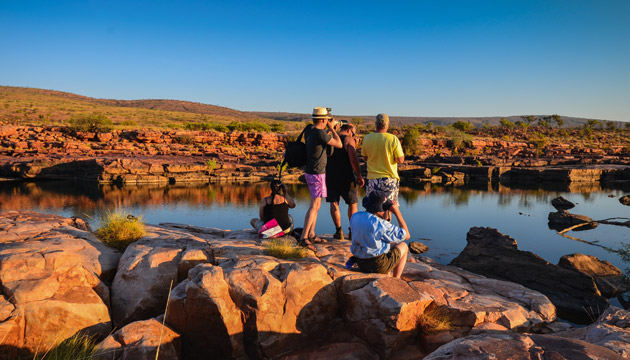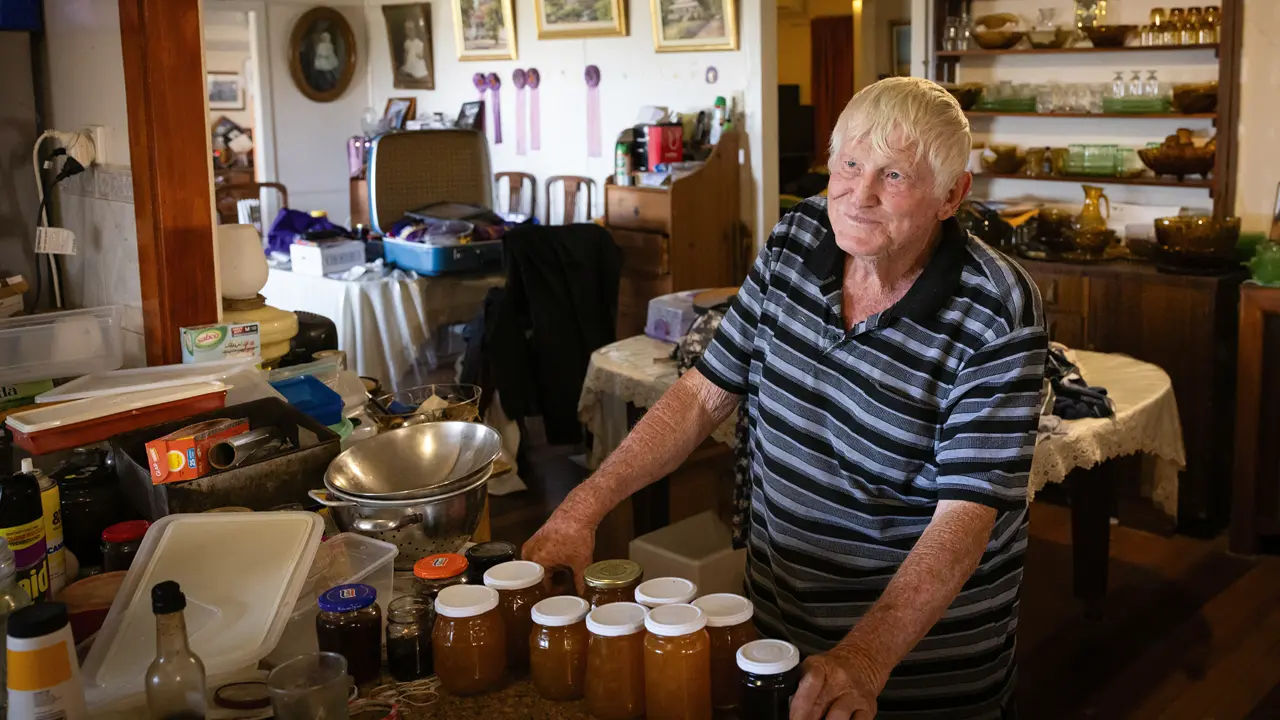The preservation of native animals creates a unique experience for visitors to Mornington Wilderness Camp in the Kimberley, WA.
Story + Photos Ricky French
It’s 5.30am and lights flicker to life inside a row of safari tents on the banks of Annie Creek. It’s in the heart of the Kimberley, 550 kilometres by road from Broome, a tiny part of a 563,136-hectare wildlife sanctuary managed by the Australian Wildlife Conservancy (AWC). A short drive down a dirt track, through regenerating bush, across a creek and up a small rise, leads to an old gate. The cattle are long gone, but the gate serves as a reminder of a different time here at Mornington Wilderness Camp. The dawn birdwatching tour brings visitors to this spot to see something hardly anyone ever sees.
Wisps of morning light streak through the trees as guests walk down a short track and clamber up rocks to gain a view over a waterhole. It’s warm. In a few short hours it will be stifling hot. A blue-winged kookaburra is first to call. A few others join in tentatively. Then, as if the starter’s gun has just been fired, the morning explodes with birdsong.
A family of bar-shouldered doves high in a gum tree turn to the rising sun to warm themselves. A magpie lark lands at the waterhole and dips in a beak. It’s joined by paperbark flycatchers and two willie wagtails. Binoculars are trained on the surrounding trees, where little friarbirds are waking. Stout, waddling quails stroll down for a drink before disappearing back to the tall grass. All are beautiful, but they’re really just warming the crowd up for the main act.
“There they are,” comes a whisper along the line. To the waterhole flies a red-headed male, then a black-headed male, two black-headed females and four juveniles. Yes, it’s definitely them: Gouldian finches in the wild. They wait hesitantly on a low branch before gathering the courage to flutter to the water’s edge and drink, retreating as stealthily as they arrived. The whole scene lasts less than three minutes, but is a thrill never to be forgotten.
This story excerpt is from Issue #122
Outback Magazine: December/January 2019









